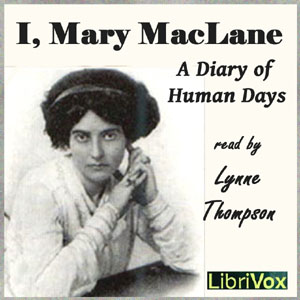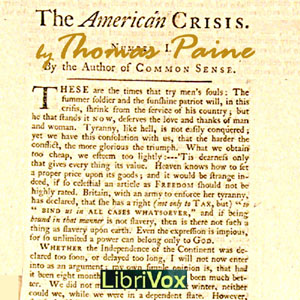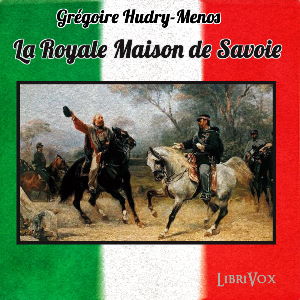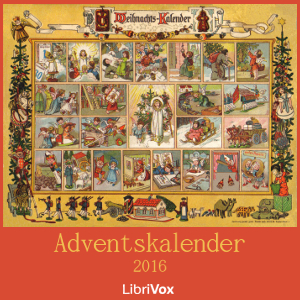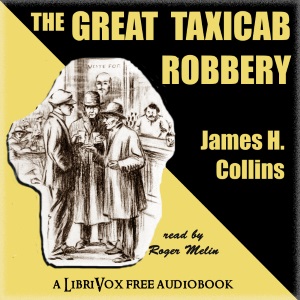This is what people were reading in 1903, short stories, poetry, and non-fiction articles. (Summary by BellonaTimes)
10 episodes

The handbook does an outstanding job of explaining the application of management and learning psychology for the general educator/manager with detailed guidance for those studying to become Certificated Flight Instructors. Study of the handbook should include the PDF from the FAA, which has excellent graphics. There are several excellent Handbooks at http://www.faa.gov/regulations_policies/handbooks_manuals/ For those who wish to view the source online in a format other than .pdf Internet Archive has some choices like Kindle and Epub available at https://archive.org/details/Aviation_Instructors_Handbook (Summary by Norman Elfer)
from the preface: Designed for ground instructors, flight instructors, and aviation maintenance instructors, the Aviation Instructor’s Handbook was developed by the Flight Standards Service, Airman Testing Standards Branch, in cooperation with aviation educators and industry to help beginning instructors understand and apply the fundamentals of instruction. This handbook provides aviation instructors with up-to-date information on learning and teaching, and how to relate this information to the task of teaching aeronautical knowledge and skills to students. Experienced aviation instructors will also find the updated information useful for improving their effectiveness in training activities.
19 episodes
This practical guide to solving all sorts of problems includes secrets and discoveries covering the Liquor Trade, Druggists' Aids, Manufacturing Hints, Toiletries and Perfumeries, Hunting and Trapping, the Fine Arts and Sciences, Farming Techniques, Confectioners' Hints, and Valuable Miscellaneous Recipes for the Household and Every Day Requirements. (Introduction by Bill Boerst)
10 episodes
Described as "the first blogger", Mary MacLane lived a tortured life, ahead of her time. Her beloved father died when she was a young child, and at the age of 8, her stepfather moved the family from its home in Winnipeg, Canada to Montana in the United States, where young Mary had a hard time making friends. Her sensational autobiographical style of writing was considered scandalous, as she told of her bohemian lifestyle, feminist politics and open bisexuality. Although popular during her lifetime, among a sensation-seeking public, and being credited with influencing such writers as Scott Fitzgerald and Edith Wharton, her work lost its popularity after her death at the age of 48. - Summary by Lynne Thompson
77 episodes
Probably no other American writer has a greater sympathy with, and a keener enjoyment of, country life in all its phases—farming, camping, fishing, walking—than has John Burroughs. His books are redolent of the soil, and have such "freshness and primal sweetness," that we need not be told that the pleasure he gets from his walks and excursions is by no means over when he steps inside his doors again. As he tells us on more than one occasion, he finds he can get much more out of his outdoor experiences by thinking them over, and writing them out afterwards. These essays are delightful stories about birds, bees, foxes, hounds, fruit (the apple), trees, squirrles and nature in general written by a man who loves watching them and writing about them. - Summary by The introduction and Phil Chenevert
12 episodes
A writer and physician, Charles John Samuel Thompson wrote several works on poisons which are still consulted today. He is especially informative on early historical poisons. This book discusses many cases of poisoning, famous and not so, as well as various topics on poisons and poisoning. - Summary by david wales
25 episodes

Anderson served as third officer aboard the Eamont. Eamont was an opium clipper built in Cowes. Eamont was involved in the opening of Japan to foreigners in 1858, serving as a dispatch boat between Nagasaki and Shanghai, and was one of the first vessels to open up a trade with Formosa. The Eamont was employed in the negotiations for the first commercial treaty with Japan. On this occasion she ran into Nagasaki and quietly dropped anchor, in spite of the fact that opposition to the proposed commercial treaty was very strong at the time. On the following morning 150 boat-loads of Japanese attempted to tow her to sea, being evidently ignorant of an anchor's raison d'etre. But though they attempted several similar methods to get rid of her they refrained from any armed attack, and, eventually, her mission was completely successful. This was in 1858, and the Eamont's crew saw many wonderful sights in that tierra incognita. The September Typhoon of 1858 destroyed several well-known opium clippers at Double Island, including the Anonyma, Gazelle, Pantaloon, and Mazeppa. Eamont was anchored off Double Island, with "150 fathoms of chain out and a second anchor backed on it at 60 fathoms." The waves in the anchorage were estimated to be as large as 40 feet, and the Eamont’s crew had to cut away her masts. Eamont was one of only two ships in that anchorage to survive the night, the other being the Hazard. (See Wikipedia article on Eamont (schooner)) ( wikipedia and david wales)
12 episodes
Stories and essays by Willa Cather - Summary by david wales
29 episodes
Fifteen short nonfiction works in the public domain, independently chosen by the readers. Topics include the history of aeroplanes, political speeches, travel, philosophy, Japan, the United Nations, Congressional law, rules of cricket and more. (Summary by Sue Anderson)Note: "On the Part Played by Accident in Discovery" by Ernst Mach was translated by Thomas J. McCormack.
15 episodes
A 13 pamphlet series by 18th century Enlightenment philosopher/author Thomas Paine, published between 1776 to 1783 during and immediately following the American Revolution, gathered into one volume in 1882 by Moncure D. Conway. Each essay, plus 2 inserts, bolstered the morale of the American colonists to fight hard for their independence, appealed to the English to support the colonist's cause, clarified the issues at stake, and denounced any type of negotiated peace. Replete with quotable quotes, the first pamphlet, Crisis I, begins with the now-familiar words "THESE are the times that try men's souls. The summer soldier and the sunshine patriot will, in this crisis, shrink from the service of their country; but he that stands it now, deserves the love and thanks of man and woman." Paine, an Englishman living in the colonies, signed his pamphlets anonymously as "Common Sense." ( Michele Fry)
19 episodes

Three diverse essays on souls in animals, a comparison of Buddhism and Christianity, and individualism in religion. Born in Hanover, New Hampshire, James Freeman Clarke attended the Boston Latin School, graduated from Harvard College in 1829, and Harvard Divinity School in 1833. Ordained into the Unitarian church he… soon threw himself into the national movement for the abolition of slavery. In 1839 he returned to Boston where he and his friends established (1841) the Church of the Disciples which brought together a body of people to apply the Christian religion to social problems of the day…. Many of Clarke's earlier published writings were addressed to the immediate need of establishing a larger theory of religion than that espoused by people who were still under the influence of Calvinism…. Clarke was an advocate of human rights…. Tempered and moderate in his views of life, he was a reformer and a conciliator.... James Freeman Clarke was one of the very first Americans to explore and write about Eastern religions. These three essays are taken from his book Nineteenth Century Questions (1897). ( Wikipedia and david wales)
3 episodes
"The mother and the child" is a lecture given by Maria Montessori in 1915. The famous educational reformer speaks about the importance to give children freedom and a suitable environment, so they will be able to fully develop according to their own nature. - Summary by kattekliek
2 episodes
The Pearl of Great Price is a selection of choice materials touching many significant aspects of the faith and doctrine of The Church of Jesus Christ of Latter-day Saints. These items were translated and produced by the Prophet Joseph Smith, and most were published in the Church periodicals of his day.
The first edition was published in 1851. It became a standard work of the Church in 1880. It was divided into chapters and verses in 1902. The version being read is the 1920 edition. (Summary by Glenn O'Brien)
16 episodes
When a man enters a dark room he is not sure of his movements, he cannot see objects around him, or properly locate them, and is liable to hurt himself by coming into sudden contact with them. But let a light be introduced, and immediately all confusion disappears. Every object is seen, and there is no danger of being hurt. To the majority, life is such a dark room, and their frequent hurts—their disappointments, perplexities, sorrows and pains—are caused by sudden contact with principles which they do not see, and are therefore not prepared to deal with. But when the light of wisdom is introduced into the darkened understanding, confusion vanishes, difficulties are dissolved, all things are seen in their true place and proportion, and henceforth the man walks open-eyed and unhurt, in the clear light of wise comprehension. - Summary by James Allen
24 episodes
In seeking for pleasures here and rewards hereafter men have destroyed (in their hearts) the Temple of Righteousness, and have wandered from the Kingdom of Heaven. By ceasing to seek for earthly pleasures and heavenly rewards, the Temple of Righteousness is restored and the Kingdom of Heaven is found. This truth is for those who are ready to receive it; and this book also is for those whose souls have been prepared for the acceptance of its teaching. (James Allen)
15 episodes
طبائع الاستبداد ومصارع الاستعباد كتاب من تأليف عبد الرحمن الكواكبي، يشخص الكاتب ما يسميه داء الاستبداد السياسي، ويصف أقبح أنواعه: استبداد الجهل على العلم واستبداد النفس على العقل. ويقول أن خلق الله الإنسان حرّا، قائده العقل فكفر وأبى إلا أن يكون عبدًا قائده الجهل، ويرى إن المستبد فرد عاجز، لا حول له ولا قوة إلا بأعوانه أعداء العدل وأنصار الجور. وأن تراكم الثروات المفرطة، مولد للاستبداد، ومضر بأخلاق الأفراد. وأن الاستبداد أصل لكل فساد، فيجد أن الشورى الدستورية هي دواؤه. كتب الكواكبي رؤوس مقالات "طبائع الاستبداد" في حلب، وكان يعدلها باستمرار، ثم وسع تلك الأبحاث ونشرها في هذا الكتاب. (Wikipedia)
11 episodes
The journal of British naturalist Bruce Frederick Cummings, spanning from his early childhood through to his early death from complications stemming from multiple sclerosis. The diary combines beautiful, lyrical passages concerning the natural world with more introspective ruminations reminiscent of Kafka. Although successful and scandalous upon their publication in 1919, interest in the diaries has faded along with public interest in naturalism and diary writing more generally. However, Cummings' work is very modern is its forthright confessional tone and contains some deeply moving pieces of writing not easily forgotten. - Summary by Adam Whybray
20 episodes
Grégoire Hudry-Menos, modeste journaliste savoyard, apporte un nouveau point de vue sur l'histoire de la maison de Savoie, montée quelques années plus tôt sur le trône d'Italie. Ces «Études historiques» sont dédiées au roi Victor-Emmanuel II. - Summary by BeniaminoMassimo
5 episodes
This collection of useful information on "Common Things" is put in the interesting form of "Why and Because," and comprehends a familiar explanation of many subjects which occupy a large space in the philosophy of Nature, relating to air, animals, atmosphere, caloric, chemistry, ventilation, materia medica, meteorology, acoustics, electricity, light, zoölogy, etc. - Summary by Anonymous
71 episodes

This book is a five hundred year old manual for how to run a kingdom or principality. Written in 1513 but not published until 1532, "The Prince" generated controversy even before it got into print. Unlike the many previous "how-to" mamuals for new rulers, "The Prince" only judged actions by their effectiveness and did not consider morals or ethics at all. Some of the suggestions were so brutal and amoral that many critics in the 18th century considered "The Prince" to be a satire, as they could not believe that any philosopher would seriously promote such actions. But perhaps the real reason for the discomfort of Machiavelli's critics is that he accurately observes and reports the actions of the most effective rulers of Renaissance Italy.Despite questions about Machiavelli's intention, there was no question about the effectiveness of his methods. Copies of "The Prince" were owned and studied by Thomas Cromwell, Henry VIII of England, the founding fathers of the American revolution, the leaders of the Parliamentarians who destroyed the Monarchy in the English Civil War, the leaders of the Glorious Revolution who restored the Monarchy twenty years later, Napoleon Bonaparte, Joseph Stalin and Benito Mussolini and many others. In the late 20th Century it was even considered the "Mafia Bible" by mobsters John Gotti and Ray DeMeo.So if you have recently acquired a kingdom or suddenly become the head of an organised crime family, this is the book for you. It's interesting for the rest of us too. (Summary by Clive Catterall)
8 episodes
Enquire Within Upon Everything was a book of how to do things in domestic life It was first published in 1856 by Houlston and Sons of Paternoster Square in London. Robert Kemp Philp. It was then continuously reprinted in many new and updated editions as additional information and articles were added. The book was created with the intention of providing encyclopedic information on topics as diverse as etiquette, parlour games, cake recipes, laundry tips, holiday preparation and first aid. - Summary by Michele Eaton
83 episodes
This year is the 13th anniversary of our beloved LibriVox. The readings in this collection celebrate that "bunch of volunteers" who make up the worldwide LibriVox community. The readings are held together by their connection to the number "13" or to the word "luck." The collection is multilingual, with recordings in English, German, and Romanian. Readings can be in any language. The selections, which are chosen by the readers, include fiction, nonfiction, poems, short stories, and articles.
24 episodes
The Charter of the United Nations signed at San Francisco on 26 June 1945 is the constituent treaty of the United Nations. It is as well one of the constitutional texts of the International Court of Justice which was brought into being by the Charter. This recording contains:
UN Charter
Statute of the International Criminal Court
Millennium Declarations
13 episodes
"Mankind is constantly astonished by reports of mishaps and disasters of manifold character, when there is seldom room for astonishment. A large proportion of the calamities reported from day to day are directly due to the haste, greed, and heedlessness of man himself, and need no comment.
But there is a large class of disasters, due solely to meteorological or geological conditions, which surpass all others in magnitude and appalling destruction. In such cases men insist on prating about “mysterious visitations,” as though these occurrences were subject to the dominion of no law. To an examination of such is this book devoted." From the preface.
30 episodes
Volume 4 discusses some of the key leaders of the ancient world, including Julius Caesar, Marcus Aurelius and Constantine, as well as important religious figures such as Saint Ambrose and Saint Augustine. Summary by KHand
20 episodes

This is a collection of short pieces, poetry or prose, fiction and non-fiction, in several different languages (except standard English). All chosen and recorded by Librivox volunteers.
01 - French - Lettre I by Napoleon Bonaparte key words: prose, letter, Napoléon, Joséphine
02 - Galician - Adiós Ríos, Adiós fontes by Rosalía de Castro key words: poetry
03 - Galician - Cántiga by Manuel Curros Enríquez key words: poetry
04 - Galician - As duas pragas by Manuel Curros Enríquez key words: poetry
05 - Galician - Falade Galego by Eduardo Pondal key words: poetry
06 - Galician - Feros Corvos de Xallas by Eduardo Pondal key words: poetry
07 - Galician - Galicia by Xoán Manuel Pintos Villar key words: poetry
08 - Galician - Ao Mariscal Pardo de Cela by Valentín Lamas Carvajal key words: poetry
09 - Galician - O Mayo by Manuel Curros Enríquez key words: poetry
10 - Galician - Negra Sombra by Rosalía de Castro key words: poetry
11 - Galician - Os Pinos by Eduardo Pondal key words: poetry
12 - Galician - Sola by Manuel Curros Enríquez key words: poetry
13 - Galician - Unha vez tiven un cravo by Rosalía de Castro key words: poetry
14 - Galician - A Xusticia pola man by Rosalía de Castro key words: poetry
15 - German - Siegfried und Starkad by Karl Mullenhoff key words: prose, legend
16 - Luxembourgish - Et wor emol e Kanoněer by Edmond de la Fontaine key words: operetta-song, love, death, ghost
17 - Polish - "Przyjaciele" from vol. "Bajki" by Adam Mickiewicz key words: poetry
18 - Polish - "Żaby i ich króle" from vol. "Bajki" by Adam Mickiewicz key words: poetry
19 - Romanian - Identitate... by Ion Luca Caragiale key words: short prose, humoristic sketch
20 - Spanish - La Novela Del Tranvía by Manuel Guitérrez Nájera key words: short fiction story, realistic, humor
20 episodes
The Mentor Association was established to increase interest and knowledge among the public in the areas of art, literature, science, nature, history and travel. The association published a magazine twice monthly, each dealing with a different topic and often written by a recognized authority of the day. They were easy to read, visually appealing and affordable. This collection includes selections from issues dating from 1913-1919. - Summary by Lynne Thompson
25 episodes
Nineteen short nonfiction works in the public domain, independently chosen by the readers. Topics include wives, widows, and women scorned--the "Baby Doe Tabor" scandal, the trials of literary marriages, and colonial women; history--Wounded Knee, the Underground Railroad, Edward Bellamy's "nationalism," and English railroads; inspiring places--the Alhambra and Squaw Rock; invention--the marine chronometer; and essays on the Constitution, the natural equality of men, old age, the consolation of reading, and on the fantastic imagination. (Summary by Sue Anderson)
The Art of Dying by August Strindberg was translated by Claud Field.
The Natural Equality of Men to be Acknowledged by Samuel Pufendorf was translated by Andrew Tooke.
19 episodes
Los Hechos de los Apóstoles es el segundo de dos libros del Nuevo Testamento escritos por Lucas. Al igual que el Evangelio que lleva su nombre, Hechos fue una carta dirigida a su amigo Teófilo, escrito entre los años 62 y 64.
El libro de Hechos comienza donde los Evangelios terminaron. Es la narración del temprano progreso del Evangelio y como los discípulos de Jesús lo llevaron de Jerusalén a Judea, a Samaria y al resto del mundo mediterráneo. La historia comienza con la ascensión de Cristo y los acontecimientos de Pentecostés. A medida que los Gentiles empezaron a responder al Evangelio, el enfoque se vuelve a Pablo y sus viajes misioneros. El libro de los Hechos forma un puente entre los cuatro Evangelios y el resto del Nuevo Testamento mostrando cómo los apóstoles llevaron la obra de Cristo, proporcionándonos un fondo histórico desde Romanos hasta Apocalipsis.
( Claudia Retif Barrett)
28 episodes
These riveting accounts by Jacob A. Riis are from the late 19th century, when lower Manhattan was teeming with struggling, near-starving immigrants crammed into wretched fire-prone tenements. Riis writes compassionately of these people who were nevertheless incredibly resilient and ever aspiring to a better life; of children, lovers, parents, policemen and firemen; of moments of joy, holidays, tragedies, and much more. –Lee Smalley
“Since I wrote ‘How the Other Half Lives’ I have been asked many times upon what basis of experience, of fact, I built that account of life in New York tenements. These stories contain the answer. They are from the daily grist of the police hopper in Mulberry Street…. They are reprinted from the columns of my newspaper and from the magazines as a contribution to the discussion of the lives and homes of the poor…. In this discussion only facts are of value, and these stories are true….” J.A.R. –From the Preface
12 episodes
From Volume 12 of the Dresden Edition of The Works of Robert G. Ingersoll, entitled Miscellany, this audio book delivers the final chapters, 21 stirring tributes delivered by Colonel Ingersoll (The Great Agnostic) at the funerals or grave sides of, or published, of persons he greatly admired. Included are George Jacob Holyoake, Benjamin W. Parker, Ebon C. Ingersoll, Rev. Alexander Clark, John G. Mills, Elizur Wright, Mrs. Ida Whiting Knowles, Henry Ward Beecher, Roscoe Conkling, Richard H. Whiting, Courtlandt Palmer, Mrs. Mary H. Fiske, Horace Seaver, Lawrence Barrett, Walt Whitman, Philo D. Beckwith, Aton Seidl, Dr. Thomas Seton Robertson, Thomas Corwin, Isaac H. Bailey, and Harrison G. Fiske. (Summary by Michele Fry)
22 episodes
Eighteen short nonfiction works in the public domain, independently chosen by the readers. Topics include ancient Greek thinkers--Parmenides, Demosthenes, Euclid; William Lloyd Garrison and the National Anti-Slavery Convention; 19th and 20th century philosophers, sociologists, theologians and essayists--Bertrand Russell, Walter Rauschenbusch, Kierkegaard, N.F.S. Brundtvig, Frederik Sibbern, Hans Lassen Martensen, Oscar Wilde; science and invention--sunspots, paper making, aviation; and the shipwreck adventures of Alexander Selkirk, the real Robinson Crusoe. (summary by Sue Anderson)
Learning to Fly by William James Jackman was co-authored by Thomas Herbert Russell and Octave Chanute.
Sibbern, Martensen, and Kierkegaard by Fredrika Bremer was translated by Mary Howitt.
The Seerest of Prevost, Frederica Hauffe, by Justinus Kerner was translated by Catherine Crowe.
18 episodes
How much more futile is it to attempt on the minuscule scale of the following tiny, if rambling, pamphlet to touch upon even a thousandth of those achievements and unremitting conflicts which entered into the texture of this master’s agitated and inharmonious life! Actually, it aims to do no more than contribute a mite toward a larger interest in the writings and the great mass of insufficiently discovered compositions of a Romanticist whose labors are still surprisingly unrecognized art works of the future. ( Author's Foreword)
4 episodes
A series of letters on the early occupation of the colony, the Aborigines, etc addressed by Victorian pioneers to his Excellency Charles Joseph La Trobe Esq. , Lieutenant-Governor of the Colony of Victoria in response to a circular letter sent by him to a number of early settlers dated 29th July 1853. -
It cannot be claimed for these papers that they are infallible records of our early history at every point.
( from the preface),
The last section ends with lists of Aboriginal words and phrases as were collected by a lady. I'm in 2 minds about these, I respect her desire to keep a record but do not have any idea of their correctness, but they are there if anyone wants to have a go. And please remember that no one is saying the views in the letters are correct. (Annise)
59 episodes
This little book, first published in 1948, is part of the Chicago Natural History Popular History series that explains difficult subjects in ways and terms we all can understand. It was published at a time in Anthropology when exciting things like carbon dating were first being used and refined. "Prehistory means the time before written history began. Actually, more than 99 per cent of man’s story is prehistory. Man is at least half a million years old, but he did not begin to write history (or to write anything) until about 5,000 years ago. The men who lived in prehistoric times left us no history books, but they did unintentionally leave a record of their presence and their way of life. This record is studied and interpreted by different kinds of scientists." - Summary by the author and phil chenevert
11 episodes

El Evangelio de Marcos hace énfasis que Jesús es el Cristo, el Hijo de Dios. Jesús anunció el reino de Dios, sanó a los enfermos, y murió como rescate por los pecadores. Además de Jesús, Marcos habla de tres grupos principales de personas; los discípulos, las multitudes, y los líderes religiosos, y cómo ninguno de los cuales comprendía a Jesús. Cuando llegó el momento para que Jesús fuera a la cruz, los líderes religiosos lo arrestaron, los discípulos lo abandonaron y las multitudes lo abuchearon. Sólo hasta que murió solo en la cruz un centurión romano reconoció que él era el Hijo de Dios. Aunque el libro es anónimo, la tradición identifica a Juan Marcos como el autor (vea Hechos 12:12). Es posible que haya basado su Evangelio en la predicación de Pedro, y fue escrito entre los años 50 y 60 dC. The gospel of Mark emphasizes that Jesus is the Christ, the Son of God. Jesus announced the kingdom of God, healed the sick, and died as a ransom for sinners. In addition to Jesus, Mark features three main groups of people; the disciples, the crowds, and the religious leaders, none of whom understood Jesus. When the time came for Jesus to go to the cross, the religious leaders arrested him, the disciples abandoned him, and the crowds jeered him. Only when he died alone on the cross did a Roman centurion recognized that he was the Son of God. Though the book is anonymous, tradition identifies John Mark (see Acts 12:12) as the author. He may have based his Gospel on Peter's preaching, writing sometime in the 50s or 60s A.D. (Summary by Claudia Barrett)
16 episodes

"The Life of Jesse Harding Pomeroy: The Most Remarkable Case in the History of Crime or Criminal Law" by E. Luscomb Haskell was published in Boston, Massachusetts in 1892 by the Harvard Law School Library, and is part of "The Making of the Modern Law, Legal Treatises, 1800-1926" series. Remarkable insight into the life of Pomeroy prior to, during, and following the crimes for which he was sentenced to life imprisonment at the tender age of 14, this is an excellent complement to Pomeroy's "autobiography" which was published immediately following his trial in 1874. The advantages offered by this short book are that it was researched and published less than twenty years after the trial and conviction; that the accused was still alive at the time of publication; and that a large amount relates to the legal perspective of one of the most fascinating and confounding episodes of American criminology. Jesse Harding Pomeroy was sentenced to life in prison in 1874 at the age of 14 for the commission of two murders, and has therefore been referred to as "America's youngest serial killer" to this day. Other books have been written about Pomeroy over the years, as it makes for a most interesting character study, in addition to its legal implications, journalistic influence, and the effect of public outcry for justice and safety were preeminent. - Summary by Roger Melin
10 episodes
This recording contains four addresses of Felix Adler (1851-1933) concerning spirituality from the perspective of Ethical Culture, an educational and religious movement founded and first led by Adler, based on the belief that living in accordance with ethical principles is central to a meaningful and fulfilling life. – Lee Smalley
“Spirituality is morality carried out to the finish….The ultimate end (of spirituality) itself is to elicit worth in others, and, by so doing, in one's self. The indispensable condition of this attitude is to ascribe worth to every human being before even we observe it, to cast as it were a mantle of glory over him, to take toward every fellow human being the expectant attitude, to seek the worth in him until we find it.” – Felix Adler, Dec. 11, 1904
4 episodes
This book is a popular science book written in the late 1600s. It is written as a series of conversations between a gallant philosopher and a countess, while walking in her garden and gazing at the stars. The philosopher explains the heliocentric (sun as the centre) model of the solar system and also muses on the possibility of extraterrestrial life. While it explains the heliocentric model, unlike other astronomy works of the time, it did not attract the attention of the Church. (Summary by TriciaG, modified from Wikipedia)
14 episodes
Robert Cortes Holliday (1880 – 1947) was an American writer and literary editor. Writer and friend, Christopher Morley, wrote of Holliday: "[he] has the genuine gift of the personal essay, mellow, fluent, and pleasantly eccentric." This is a 1918 selection of his essays. - Summary by david wales
23 episodes
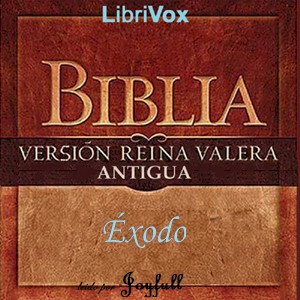
Éxodo es la narración de cómo Dios cumplió la promesa que hizo a Abraham de multiplicar sus descendientes y convertirlos en una nación grande, cómo los liberó de la esclavitud en Egipto, los llevó a la tierra prometida, y luego los unió a sí mismo mediante un pacto que hizo con ellos en el Monte Sinaí. Moisés, bajo el mando directo de Dios y como líder de Israel, recibió los Diez Mandamientos de Dios, junto con otras leyes, que rigen la vida diaria y la manera de rendir culto de Israel. También dirigió la nación para la construcción del tabernáculo, un lugar donde la presencia de Dios podría habitar entre su pueblo y donde podrían hacer sacrificios por el pecado. La mayoría de los Judíos y Cristianos reconocen a Moisés como el autor del libro de Éxodo, escrito poco después de la salida de Egipto (alrededor de 1445 aC).
Exodus is the story of how God fulfilled the promise He made to Abraham to multiply his descendants and turn them into a great nation, how He freed from slavery in Egypt, led them to the promised land, and then joined himself to them by a covenant he made with them at Mount Sinai. Moses, under the direct command of God and as leader of Israel, received the Ten Commandments of God, along with other laws that govern daily life and the way of worship of Israel. He also led the nation to build the tabernacle, a place where God's presence among his people could dwell and where they could make sacrifices for sin. Most Jews and Christians recognize Moses as the author of the book of Exodus, written shortly after the exodus from Egypt (about 1445 BC).
- Summary by Claudia Barrett
40 episodes
Diese Sammlung ist ein Adventskalender und enthält für jeden Tag vom 1. bis 24. Dezember eine Aufnahme über Weihnachten, den Winter und verwandte Themen.
23. Dezember - Die zwei Hirten in der Christnacht - gelesen von Sonia und Gaby.
24. Dezember - Stille Nacht - gesungen von Sonia, Eva K., Gaby, Julia Niedermaier, Boris und Karlsson, mit Klavierbegleitung von Ruth Golding.
24 episodes
Many books on sports of various kinds have been written, but outside of an occasional article in periodicals devoted to bee literature, but little has been written on the subject of bee hunting. Therefore, I have tried, in this volume, Bee Hunting for Pleasure and Profit, to give a work in compact form, the product of what I have learned along this line during the forty years in nature's school room. - Summary by John Ready Lockard
14 episodes
In 1912, $25,000 was stolen during a bank transfer in New York City in broad daylight. In what may appear astonishing in today's world, the transfer occurred in a New York City taxicab.
This factual account brings true crime of the early twentieth century to life. The various methods used by the detectives and police in their attempts to solve the mystery behind the robbery, and hopefully bring the thieves to justice, makes for great reading, particularly when one considers the fact that the accounts occurred over a century ago, and are quite authentic. Although the police now have higher technological advantages than was available over a century ago, the reader may find that many general techniques haven't changed all that much over the years. The characters involved with this true caper prove ingenious on both sides.
( Roger Melin)
10 episodes
Sojourner Truth (born Isabella Baumfree) was born into slavery in 1797 (or thereabouts) in Swartekill, Ulster County, New York. This narrative, as told by Sojourner Truth to her friend Olive Gilbert, recounts to the best of her recollection what she and her family endured while they were the legal property of other human beings. These life experiences served as the catalysts for her becoming, in her later years, an outspoken abolutionist and women's rights activist. Her forgiving attitude toward those who once treated her and her loved ones with such cruelty is an example for all who would aspire to heal and move on from traumatizing life experiences. The voice of Olive Gilbert comes through in this narrative, and together, she and Sojourner Truth build a compelling case against slavery. - Summary by Holly Jenson
31 episodes
This book doesn't advise against marriage but just offers advice on the errors some people can make who make the wrong choice when entering into so long a contract. - Summary by Michele Eaton
11 episodes
Eighteen short nonfiction works in the public domain, independently chosen by the readers. Topics include philosophy and thought -- Plato, Aristotle, Leonhard Euler, Henri Amiel, and the French Rights of Man; adventure and mystery -- the ascent of Aconcagua and the mystery ship Mary Celeste; science -- a new comet and lichen dyes; portraits of the seasons by Lucy Maud Montgomery: biographies of Charles Dickens and Clara and Robert Schuman; a history of the Transcendental utopia Fruitlands by Louisa May Alcott, and an essay on reading by Isaac Disraeli. summary by Sue Anderson
18 episodes

In 1915 Oscar Hornung, son of the famous author E W Hornung, was killed at Ypres after less than a year as a soldier in Flanders. He was only 20. Two years later E W Hornung volunteered to help run one of the YMCA canteens close behind the front line.
This book is Hornung’s own account of the time he spent in Northern France: first helping in a canteen, then running a library for the enlisted men. He wanted to be near the place where his son died, to meet the young soldiers who were fighting the war, and to make their lives a little better. More than anything, Hornung wanted to believe there was a greater purpose to he war: in his descriptions soldiers are always heroes, the struggles just, and leaders wise and kind.
But whatever his motivations and blind-spots, Hornung brought all his skills as a highly experienced novelist to the task of telling his story. We feel we are there with him while he talks to the soldiers, travels to the front line to serve cocoa and biscuits under fire, and finally sets up a lending library only a couple of miles from No Man’s Land. Even Sir Arthur Conan Doyle (a former friend who reported Hornung to the authorities for promoting pacifism) grudgingly admitted that this book contains some of the best descriptions of life on the Western Front.
(The cover shows the western front as it passed trough the town of Arras in 1918 at the time the author would have known it)
(Summary by Clive Catterall)
13 episodes

Born into slavery in Mississippi in 1862, Ida B. Wells-Barnett was an African-American journalist, newspaper editor, suffragist, sociologist, feminist, leader in the Civil Rights Movement, and one of the founders of the National Association for the Advancement of Colored People (NAACP) in 1909. Gathering her information from two New Orleans newspapers, Mrs. Wells-Barnett recounts in graphic detail the events of one particularly violent week in early 20th century New Orleans during which a mob "roamed the streets day and night, searching for colored men and women, whom they beat, shot and killed at will." A worse massacre was avoided, as stated by the author, because of "the determined stand for law and order taken by these great [newspapers] and the courageous action taken by the best citizens of New Orleans, who rallied to the support of the civic authorities." This account serves as chilling documentation of the mindless savagery of an anger- and hate-driven mob. - Summary by Holly Jenson
17 episodes
Subtitled "An Account of Negro Citizenship in the American Democracy", we are presented an in-depth and essentially non-opinionated open view of race relations as they existed in the U.S. in 1908, more than 40 years following the end of the Civil War.The book is in three parts: The Negro in the South; The Negro in the North; and the Negro in the Nation. We are presented both rural and urban points of view, struggles for survival, varying district relationships, the effect of lynching, power struggles, and political repercussions, among many other topics. - Summary by Roger Melin
29 episodes



